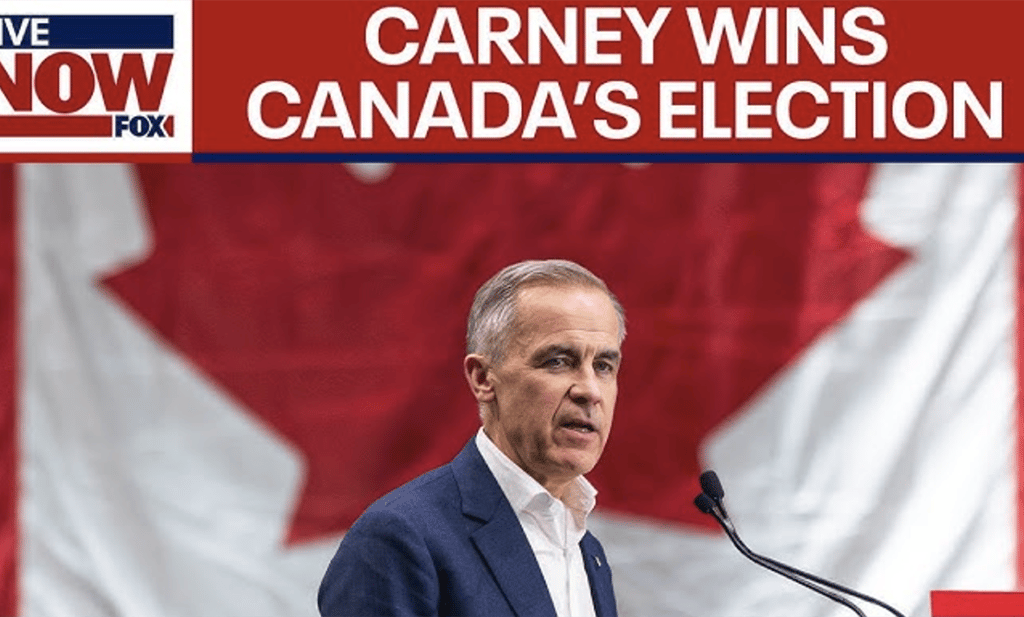Canada’s Election Shocker: How Trump’s Tariffs Handed Mark Carney a Win
4/29/20253 min read


Canada’s Election Shocker: How Trump’s Tariffs Handed Mark Carney a Win
The Unexpected Turn in Canada’s 2025 Election
On April 29, 2025, Canada woke up to a political earthquake: Mark Carney’s Liberal Party clinched the federal election, defying months of polls that had the Conservatives leading by double digits. What caused this dramatic upset? The answer lies south of the border—Donald Trump’s aggressive trade policies and provocative rhetoric toward Canada turned the election into a referendum on national sovereignty. Let’s unpack how this unfolded and what it means for Canada’s future.
Trump’s Tariffs: The Game Changer
Back in March 2025, Trump slapped a 25% tariff on Canadian exports and a 10% tariff on energy products, citing a “national emergency” over illegal immigration and fentanyl trafficking. He didn’t stop there—on election day, Trump posted on social media, suggesting Canada should become the 51st U.S. state, calling it “common sense.” For many Canadians, this was a step too far. A CTV News survey found that 36% of voters named Trump as their top election issue, overshadowing domestic concerns like inflation and housing.
Mark Carney, a former Bank of Canada governor with a reputation for economic steadiness, seized the moment. He positioned himself as the anti-Trump candidate, emphasizing Canadian values like humility, ambition, and unity. In his victory speech in Ottawa, Carney didn’t mince words: “America wants our land, our resources, our water. Trump is trying to break us so America can own us. That will never happen.” The crowd roared in approval, reflecting a broader sentiment of defiance against U.S. interference.
From Underdog to Prime Minister
Just months ago, the Liberals were trailing the Conservatives, led by Pierre Poilievre, by over 20 points. Poilievre had capitalized on frustrations with Justin Trudeau’s decade-long tenure, which ended with Trudeau’s resignation amid a 20% approval rating. When Carney took over as Liberal leader, few thought he could turn the tide. But Trump’s actions flipped the script. Canadians, particularly older voters over 49 who favored the Liberals, rallied behind Carney as a steady hand to navigate the looming trade war with the U.S. Meanwhile, the Conservatives, despite strong support among younger voters, couldn’t shake the perception that they aligned too closely with Trump’s “Maple MAGA” rhetoric.
Social media captured the mood perfectly. One X user,@CanadianKobzar, celebrated with a fiery post: “SUCK IT MAPLE MAGA!!! NOT IN OUR COUNTRY DAMNIT!” Another,m@Eman856, shared an image of a “NO MAGA” sign, calling the result “Canada giving Trump a big middle finger.” The sentiment was clear: Canadians weren’t just voting for Carney—they were voting against Trump.
What’s Next for Canada?
Carney’s win signals a pivot for Canada. In his speech, he promised to “buy Canadian” and support communities targeted by Trump’s tariffs. He also hinted at strengthening ties with the EU to counterbalance U.S. pressure—a strategy already in motion, as UK Prime Minister Keir Starmer congratulated Carney, noting the growing relationship between their nations. But challenges loom. Trump’s tariffs are still in place, and his administration shows no signs of backing down. At home, Carney faces a generational divide: younger Canadians, who leaned Conservative, feel alienated by the Liberals’ focus on older voters with assets like homes and investments.
Carney’s lack of political experience also raises questions. As Erica Ifill noted in The Guardian, while he has the gravitas to steer the economy, he’s light on ideas to heal Canada’s social fissures, especially around Indigenous rights and racial equity. Can he deliver the “big changes” he promised, or will his inexperience leave Canada vulnerable to both external threats and internal unrest?
A Wake-Up Call for Global Politics
This election underscores how interconnected global politics has become. Trump’s influence didn’t just shape the U.S.—it reshaped Canada’s future. It’s a reminder that in an era of trade wars and nationalist rhetoric, smaller nations like Canada must navigate carefully to protect their sovereignty. Carney’s victory may inspire other countries facing similar pressures to push back against external interference, but it also highlights the fragility of domestic unity in the face of such challenges.
What do you think?
How will Carney balance Canada’s economic dependence on the U.S. with the need to assert national independence?
Can Canada bridge its generational divide, or will younger voters continue to feel sidelined?
Will Trump’s tariffs force other nations to rethink their trade relationships with the U.S.?
Let’s hear your thoughts in the comments!
Photo Credit: Fox News
hello@boncopia.com
+13286036419
© 2025. All rights reserved.